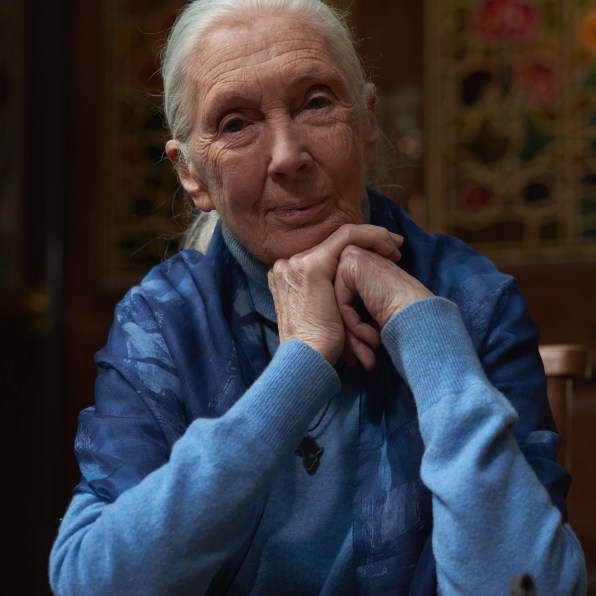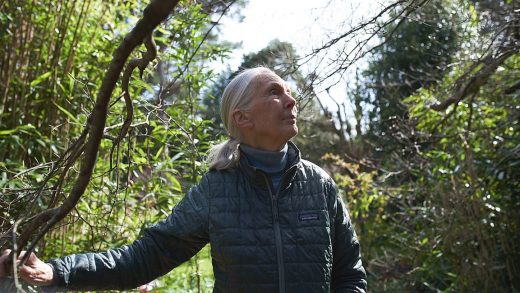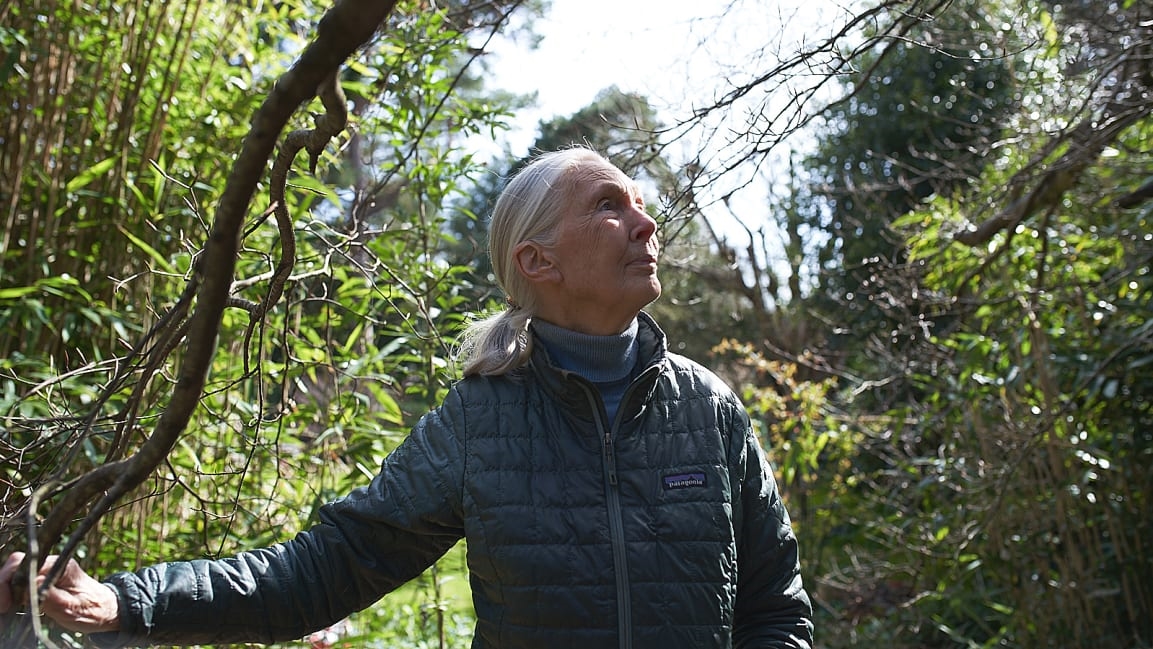Jane Goodall’s advice for the world: ‘We have to roll up our sleeves’
Jane Goodall knows that it’s all too easy to feel despair when you look at what’s going on in the world, whether it’s the attacks against Ukraine or the unrelenting news about our climate crisis. “You wouldn’t be human if you didn’t feel this way when you look around the world,” she says.
But for 60 years, she’s been a pivotal figure of hope in the world of wildlife research and conservation, working tirelessly to not only help us better understand chimpanzees, but to also fight for our natural world. She’s morphed from a researcher to an activist, sparked particularly by learning how habitat destruction and illegal trafficking threatened chimpanzees, and seeing the destruction and deforestation of the Gombe National Park. In part because of that work, Goodall won the 2021 Templeton Prize in May of last year, an honor from the Templeton Foundations that recognizes spiritual contributions to the world—and has previously gone to Mother Teresa, Desmond Tutu, and Francis Collins, who led the Human Genome Project.

[Photo: Tim Cole/courtesy National Geographic Society]
This week, the Templeton World Charity Foundation has also announced a $2.7 million grant to National Geographic, which will be used to find and fund, per the foundation, the “next Jane Goodalls,” in honor of Goodall herself. (Goodall notes, though, that she’s “always stressed that we’re individuals, and there’s never two people alike, but I think everybody knows what it means.”) The National Geographic Society will select and support three scientists whose passion for wildlife research will “illuminate potential unknown wonders of our world.” That grant will help support those yet-to-be-selected individuals working with wild creators, either on land or at sea, for a 5-year program that could potentially be expanded to 10 years.
“Young people [are] my greatest reason for hope,” she says. “Once they understand the problems, and they’re empowered to take action and given a voice and listened to, they’re already changing the world.” Goodall’s youth action program Roots & Shoots, which is in more than 65 countries, works with members from preschool-age to those in universities, supporting them on their projects to help animals and the environment. Those projects have planted millions of trees around the world, grown organic food gardens in schoolyards, and spread petitions to save wildlife, like badgers in the U.K. (Her 2021 Templeton Prize comes with an award of 1.1 million pounds, which Goodall says will fund more Roots & Shoots projects.)
There are certainly still many unknowns about our natural world and wildlife, and Goodall thinks—and hopes—there always will be. “I don’t think we’ll ever know it all,” she says. But what wildlife research, in particular, can do, as we discover more and more about nature, is teach us how to better treat animals and explore environments.
There’s no denying that our relationship with nature is fractured. The COVID-19 pandemic, Goodall says, shows how “we have so disrespected nature and animals, that we’ve created environments that make it relatively easy for pathogens like a virus to jump from an animal to a person. . . . We penetrate wild animal habits, we destroy them, we put some species in closer contact with each other and with people, opportunities for diseases to start jumping about. We capture them, traffic them, sell them as foods, medicine, or exotic pets in wildlife markets, and think of the factory farms with animals crowded together in totally inappropriate conditions.”
This reality—and our future in which pandemics from zoonotic diseases are more likely—is our fault, Goodall says. “We’re reaping the harvest we’ve sown.” And still, she sees hope for our future, crucially in individual action. (Goodall also wrote a book with Douglas Carlton Abrams, published October 2021, The Book of Hope: A Survival Guide for Trying Times.)
“It seems to me that we’re at the mouth of a very long, dark tunnel, and right at the end there’s a little shining star that’s hope. But hope is about taking action. We don’t just sit at the mouth of the tunnel and hope the star will come to us. We have to roll up our sleeves and crawl under, climb over, work around all these obstacles like climate change, loss of biodiversity, poverty, population growth, greed, all these horrible problems where we’re destroying the land,” she says. “But if we just sit and hope things will get right, they certainly wouldn’t. Whether we reach that star depends on I think a critical mass to take action.”
Every day that we live, she adds, we make an impact on the planet. “You’ve got a choice as to what kind of impact you make.”
Fast Company , Read Full Story
(31)



